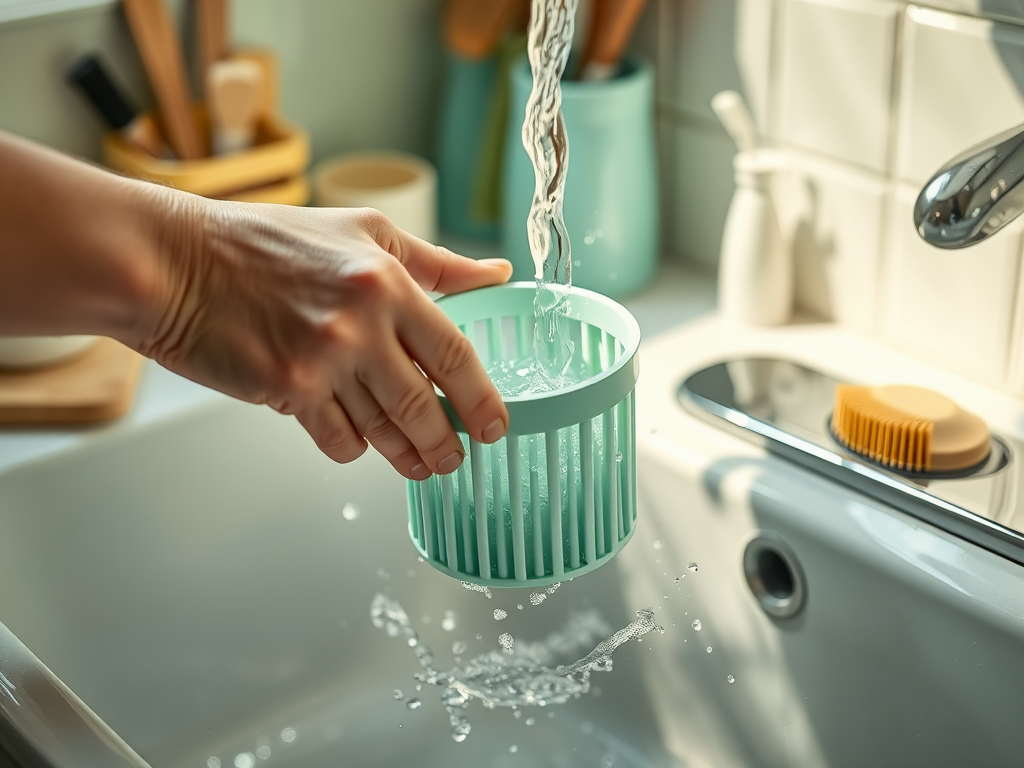htmlWhy Regular Dishwasher Filter Cleaning is Important for Efficiency Dishwashers have revolutionized how we approach dish cleanup, providing a level of convenience that’s hard to match. However, even the most advanced dishwasher requires care and maintenance to perform at its best. Central to its effective operation is the often-overlooked dishwasher filter. In this article, we will dive into the importance of regular dishwasher filter cleaning and how this simple task can drastically enhance efficiency. Foul odors, consistent residue on dishes, and poor water drainage are common indicators of a clogged filter. While some may overlook these issues, addressing them through routine maintenance is crucial. Not only do clogged filters contribute to inefficient dishwashing, but they can also lead to increased energy consumption. Understanding how to maintain your dishwasher filter effectively is essential for preserving appliance longevity and ensuring sparkling clean dishes.
Understanding the Dishwasher Filter
 The dishwasher filter serves a vital function in the cleaning process. Designed to catch food particles, debris, and other residues, it plays a crucial role in maintaining optimal performance. Neglecting the filter can lead to cleaning inefficiencies that disrupt the entire washing cycle. Two primary types of filters can be found in dishwashers today; let’s explore them.
The dishwasher filter serves a vital function in the cleaning process. Designed to catch food particles, debris, and other residues, it plays a crucial role in maintaining optimal performance. Neglecting the filter can lead to cleaning inefficiencies that disrupt the entire washing cycle. Two primary types of filters can be found in dishwashers today; let’s explore them.
- Self-Cleaning Filters: These filters are built into most modern dishwashers. They utilize the appliance’s spray action to wash away food particles, minimizing manual maintenance.
- Manual Filters: Found in older models, these filters require regular cleaning by the user and can become clogged if neglected.
- Hybrid Filters: Some dishwashers employ a combination of both, offering the best of both worlds regarding manual and self-cleaning mechanisms.
Impact on Efficiency
 Regular filter cleaning has a direct impact on the overall efficiency of your dishwasher. When the filter is clear, water can flow freely, resulting in better cleaning outcomes. Conversely, a clogged filter hinders water circulation, which significantly reduces cleanliness. Moreover, maintaining a clean filter promotes energy efficiency.
Regular filter cleaning has a direct impact on the overall efficiency of your dishwasher. When the filter is clear, water can flow freely, resulting in better cleaning outcomes. Conversely, a clogged filter hinders water circulation, which significantly reduces cleanliness. Moreover, maintaining a clean filter promotes energy efficiency.
| Benefits of Clean Filters | Consequences of Dirty Filters |
|---|---|
| Enhanced cleaning performance | Dirty dishes post-cycle |
| Reduced energy and water consumption | Increased utility bills |
| Prolonged appliance lifespan | Potential for appliance damage |
Improved Cleaning Performance
Poor cleaning performance can be attributed to clogged filters. When filters are filled with food particles, water flow is restricted, making it harder to entirely wash away residues. Regular cleaning of the filter guarantees that your dishes emerge spotless every single time.
Energy Efficiency
A clogged filter forces your dishwasher to operate harder, leading to unnecessary strain and increased energy consumption. This not only heightens your electricity costs but also has a larger environmental impact. By ensuring your filter is clean, you promote sustainable use of resources while lowering household energy bills.
Signs Your Dishwasher Filter Needs Cleaning
Timely maintenance of your dishwasher filter can prevent bigger problems down the road. Here are several signs that indicate it’s time for a deep clean:
- Dirty Dishes: If your dishes aren’t coming out clean after a wash cycle, it may be due to a clogged filter.
- Unpleasant Odors: A smelly dishwasher often indicates the presence of food particles stuck in the filter.
- Water Drainage Problems: Standing water at the bottom of the dishwasher is usually a telltale sign that the filter needs cleaning.
How to Clean Your Dishwasher Filter
Maintaining a clean dishwasher filter is a straightforward task. Here’s a quick step-by-step guide to help you through the process efficiently:
- Turn Off the Dishwasher: Always start by ensuring the appliance is turned off and cooled down before beginning any maintenance.
- Remove the Filter: Refer to your owner’s manual for detailed instructions on filter removal.
- Rinse the Filter: Use warm water to rinse it and remove any debris or residues stuck to it.
- Scrub if Needed: For stubborn particles, gently scrub the filter with a soft brush.
- Reinstall the Filter: After it is thoroughly cleaned, securely reinstall it into the dishwasher.
Conclusion
Regular cleaning of your dishwasher filter is more than a routine chore; it is integral to maintaining washing efficiency. By keeping the filter clean, you boost the cleaning performance while saving on energy costs and prolonging the life of your appliance. To ensure that your dishwasher operates optimally, consider scheduling monthly cleanings. This small investment of time can lead to significant long-term benefits, enhancing the longevity and effectiveness of your machine.
Frequently Asked Questions
- What happens if I don’t clean my dishwasher filter? Failing to clean your dishwasher filter can lead to poor cleaning performance, foul odors, and increased energy consumption.
- How often should I clean my dishwasher filter? It is recommended to clean your dishwasher filter at least once a month to maintain optimal performance.
- Can I run the dishwasher without a filter? No, running the dishwasher without a filter can lead to significant problems, including poor cleaning and potential damage to the appliance.
- What is the best way to clean a dishwasher filter? Remove the filter and rinse it under warm water. For stubborn debris, use a soft brush to scrub it clean.
- Are all dishwasher filters the same? No, dishwashers have different types of filters. Be sure to check your owner’s manual for specific instructions regarding your model.
